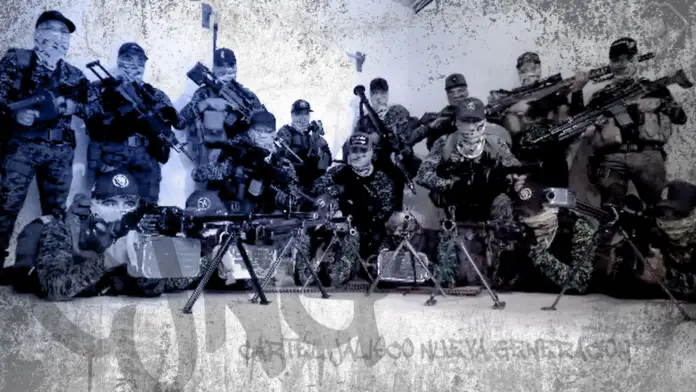The Jalisco New Generation Cartel (CJNG) may exploit the fragmentation of the Sinaloa Cartel to expand its operations in various territories of Mexico by 2025, leading to increased violence, according to a recent report by the Armed Conflict Location and Event Data Project (ACLED).
Rising Violence
ACLED’s annual report, which monitors global violence, highlights that Mexico is the most dangerous country in the world without an active war. The report, published on December 12 by researcher Sandra Pellegrini, notes that cartels are diversifying their activities to ensure financial sustainability, including extortion, human smuggling, and fuel theft, intensifying competition for illicit markets.
Increased Fatalities
In 2024, Mexico saw an 18% increase in fatalities from clashes between armed civilian groups compared to the previous year. ACLED attributes this rise in violence to the internal breakups of established criminal groups, such as the Sinaloa Cartel.
Fragmentation of the Sinaloa Cartel
Since late 2023, several criminal cells that operated for the benefit of Joaquín ‘El Chapo’ Guzmán’s sons in Sonora declared their independence, leading to constant disputes with Los Chapitos throughout 2024. The capture of Ismael ‘El Mayo’ Zambada in July further fueled a confrontation between Los Chapitos and Los Mayos, resulting in over 500 deaths in Sinaloa between September and December.
CJNG’s Expansion
The CJNG has been engaged in continuous struggles with regional criminal groups, including La Barredora in Tabasco and the Santa Rosa de Lima Cartel (CSRL) in Guanajuato. In Tabasco, the conflict centers on migrant trafficking routes, while in Guanajuato, it revolves around fuel theft and extortion. A recent attack in Querétaro, where ten people were killed in a bar, highlights the ongoing violence.
Use of Explosives
Pellegrini’s report also notes a significant increase in the use of explosives by criminal groups in states such as Michoacán, Guerrero, and Guanajuato. These groups have adapted commercial drones for combat and learned remote violence tactics from Colombian insurgent groups.
Government Response
ACLED anticipates that Claudia Sheinbaum Pardo’s administration may take more aggressive security measures. However, Sheinbaum has so far focused on addressing root causes, consolidating the National Guard, strengthening intelligence work, and coordinating with federal entities.
Source: Infobae




